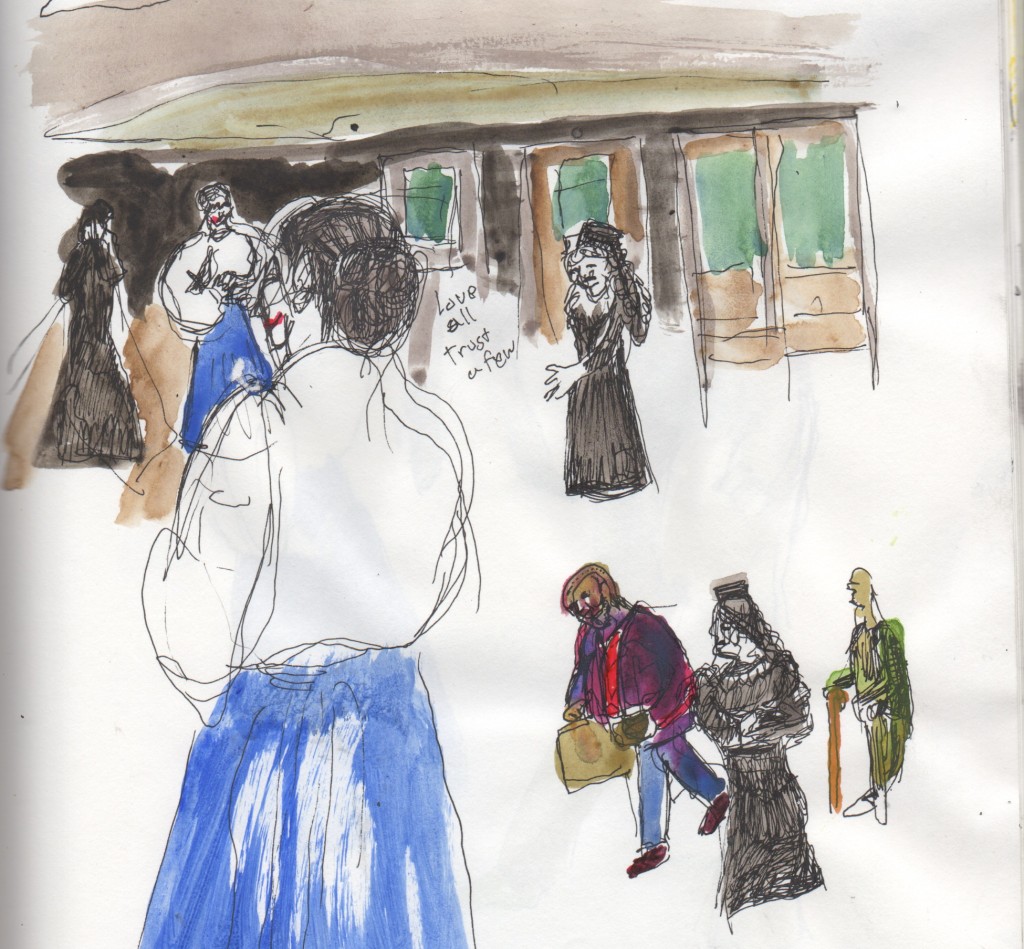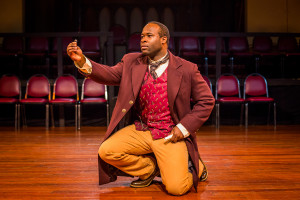“The web of our life is of a mingled yarn, good and ill together: our virtues would be proud,if our faults whipped them not; and our crimes would despair, if they were not cherished by our virtues.”
― William Shakespeare, ALL’S WELL THAT ENDS WELL

With such successes as Friedrich Schiller’s Mary Stuart and August Strindberg’s The Creditors, (not to mention its popular reading series), Philadelphia Artists’ Collective has proven itself the best adaptor of classic plays in the city. Working within (The Rape of Lucrece, Timon of Athens) and outside (Macbeth and Hamletat Hedgrow, The Tempest and Othello for Curio) the collective, co-founder Dan Hodge has established himself as the best director of Shakespeare around. PAC’s current production of the Bard’s ALL’s WELL THAT ENDS WELL confirms those assessments.
If Romeo and Juliet sees Shakespeare expose the tragic irrationality of teenage love and Taming of the Shrew finds him fiercely realistic about the absurd compromises which a successful match requires, ALL’S WELL brings his piercing insight to a cynical story of unrequited and evolving love.
Hodge keeps the staging simple: Mari Ma’s eloquent original music, company member Katherine Fritz’s somehow fitting fin de siecle costumes, sparse props (a suitcase, a wheelchair, a laundry basket, a sword, a whiskey flask) provide the only set. Hodge is here to tell that story.
The key plotline follows a young commoner Helena (Melanie Stefan-Watts, whose facial expressions speak in folios) motivated by her driving affection for nobleman Bertram (Akeem Davis). The elderly French king (John Lopes), grateful for her medical powers, compels Bertram to marry Helena. Instead, he flees to war in Italy with his mischievous and cowardly companion Parolles (Damon Bonetti, in the production’s standout performance). Helena follows him, her crafty commitment to winning Bertram’s affections contrasting with his hypocritical dismissal of them. (But of course, you don’t miss your water till the well runs dry.)
Parolles’s trickery forms a main subplot of ALL’S WELL; another sees Brian McCann in masterfully physical turn as sad clown Lavatch. Hodge successfully weaves these threads into a coherent work, avoiding a common pitfall of Shakespeare productions, where comedic asides feel ill-fitting and distracting. Instead, the downfall of Parolles, which exposes his disloyal warnings about Betram’s womanizing, provide a solid motivation for the nobleman’s climactic change of heart, a transition which appears tacked-on and unconvincing in lesser stagings.

ALL’S WELL sees Shakespeare decisively shake off the classical theatrical conventions of unity of time and space, as Helena follows her love from Spain to Paris to Florence to Marseilles to Paris, over some indeterminate span of months. By emphasizing the comprehensible human interactions of characters, Hodge keeps this production easy to follow through the temporal and locale changes, without ever undermining the beauty of Shakespeare’s poetry (“whose words all ears took captive”) or the strength of his psychology.
The director is aided by stellar performances throughout, from the gravitas of Lopes as the king, Kirsten Quinn as Bertram’s mother, Donovan Lockett as Bertram’s love interest Diana, and Monroe Barrick as Parolles’s rival Lafeu to the controlled playfulness of Bonetti, McCann, and Joel Guerrero as soldier Dumaine. I’d quibble with the choice by Hodge and Stefan-Watts to over-emphasize Helena’s desperation in the affected breathless hysteria of several opening-act scenes, which underplay her strength and cunning, but her expressiveness and force elsewhere are ample ripost.
Hodge downplays the comedic elements oversold in other productions. Though darkly funny at times, his ALL’S WELL is unforgiving, bleak (“simply the thing I am shall make me live”, laments Parolles)—a convincing look at human interaction, at love.
[Broad Street Ministry, 315 S. Broad Street] November 30-December 17, 2016; philartistscollective.org.
